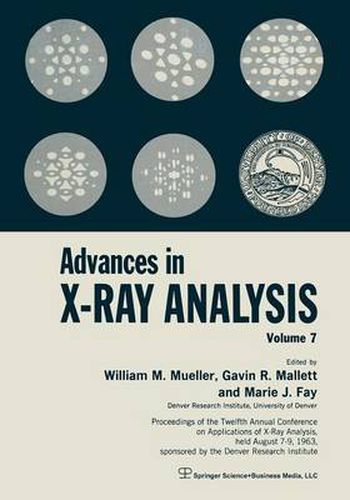Readings Newsletter
Become a Readings Member to make your shopping experience even easier.
Sign in or sign up for free!
You’re not far away from qualifying for FREE standard shipping within Australia
You’ve qualified for FREE standard shipping within Australia
The cart is loading…






This title is printed to order. This book may have been self-published. If so, we cannot guarantee the quality of the content. In the main most books will have gone through the editing process however some may not. We therefore suggest that you be aware of this before ordering this book. If in doubt check either the author or publisher’s details as we are unable to accept any returns unless they are faulty. Please contact us if you have any questions.
Consider for a few moments the staggering magnitude of technological advance which has occurred since the birth four centuries ago of that early progenitor of the scientific method, Galileo. Think also about the extent of scientific knowledge avail able during the lifetime of Galileo and his associates; knowledge increasing slowly through several centuries, accelerating rapidly during the past twenty years, culminat ing at the present time in a virtual impossibility that one person - one communit- possibly even one nation - can hope to generate or use productively more than a minute portion of the world’s scientific knowledge. New developments - expanded technological concepts - occur with dazzling rapidity, often faster than they can be assimilated. At the same time there are practical limitations to the extent of formal education. Continuing education, upgrading of scientific know-how, retraining to assure full utilization of existing knowledge - these are urgent problems which today confront the nation’s scientific community. And there is never enough time. The problem is compounded by the increasing burden of information retrieval.
$9.00 standard shipping within Australia
FREE standard shipping within Australia for orders over $100.00
Express & International shipping calculated at checkout
This title is printed to order. This book may have been self-published. If so, we cannot guarantee the quality of the content. In the main most books will have gone through the editing process however some may not. We therefore suggest that you be aware of this before ordering this book. If in doubt check either the author or publisher’s details as we are unable to accept any returns unless they are faulty. Please contact us if you have any questions.
Consider for a few moments the staggering magnitude of technological advance which has occurred since the birth four centuries ago of that early progenitor of the scientific method, Galileo. Think also about the extent of scientific knowledge avail able during the lifetime of Galileo and his associates; knowledge increasing slowly through several centuries, accelerating rapidly during the past twenty years, culminat ing at the present time in a virtual impossibility that one person - one communit- possibly even one nation - can hope to generate or use productively more than a minute portion of the world’s scientific knowledge. New developments - expanded technological concepts - occur with dazzling rapidity, often faster than they can be assimilated. At the same time there are practical limitations to the extent of formal education. Continuing education, upgrading of scientific know-how, retraining to assure full utilization of existing knowledge - these are urgent problems which today confront the nation’s scientific community. And there is never enough time. The problem is compounded by the increasing burden of information retrieval.